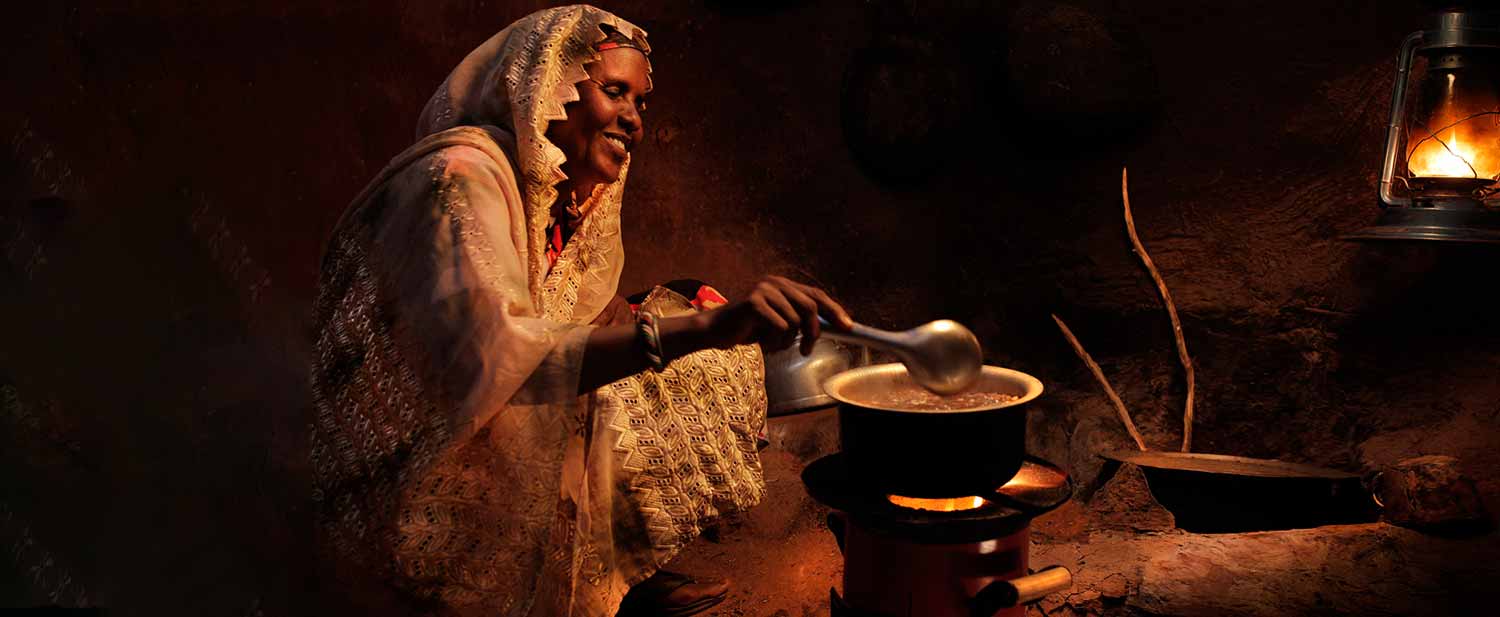Just like COVID-19, lack of access to clean cooking solutions continues to be a huge crisis. The pandemic has led to many planned events and celebrations being shelved.
During the festive season, the World Health Organization (WHO) predicted a spike in COVID-19 cases ahead of the festivities that are known to promote social gatherings.
At the same time, locally, the government urged Kenyans to minimize traveling upcountry. Despite the restrictions and disruptions, one thing solidly remained the same, “cooking in most households”.
The majority of households in rural areas use open fires and solid fuels to prepare the various delicacies, harming not only the environment but also their health.
Whereas cooking is a fundamental part of life, it is also an activity that brings families together and has cultural and social significance worldwide. In some developing countries like Kenya, solid fuels like wood and coal are often used as traditional stoves for cooking.
Such polluting fuels and technologies result in household air pollution, causing respiratory illnesses, heart problems, and even death. Evidence from the WHO indicates that indoor air pollution causes more than 4 million premature deaths every year globally—50% being children under 5.
“We have to do things differently, disrupt our way of thinking, as business-as-usual will not enable us to achieve our global and national aspirations.” – Hon. Simon Kachapin, Chief Administrative Secretary, Kenya Ministry of Energy
Research carried out by the Clean Cooking Alliance shows that the use of open fires and solid fuels for cooking is one of the world’s most pressing health and environmental problems.
Additionally, the report indicates that women and children are disproportionally affected by this massive global challenge, suffering from toxic smoke, time poverty, and the consequences of deteriorating environments.
A 2020 World Bank report dubbed, The State of Access to Modern Energy Cooking Services, paints a clear picture. It states that the world remains off-track by current estimates to meet the UN Sustainable Development Goal SDG 7 target, aiming to ensure access to affordable, reliable, sustainable, and modern energy for all.
Additionally, it shows that in 2018, only 63% of the global population had access to clean cooking fuels and technologies.
Up to 34% of wood fuel harvested is unsustainable, contributing to environmental degradation and climate change. The contribution of these fuels to land cover change depends on the rate of extraction and productivity of woody biomass in the affected regions.
While the focus is often on “natural forests”, affected areas include woodlands, shrubland, plantations, woodlots, and other communally managed resources, as well as roadsides and riparian zones. The high percentage of use of these fuel woods and charcoal has resulted in over 13 million tons of wood consumed by Kenyans annually.
The COVID-19 global pandemic affected several aspects of life and further underscored the interlinkages between traditional cooking, gender, health, and the environment.
Some preliminary studies carried out directly linked COVID-19 and air pollution indicating that people with severe underlying respiratory health conditions caused by air pollution were more likely to be affected by COVID-19 and are less likely to recover.
This linkage suggests a heightened risk for women across all age groups and children who cook using traditional technologies and fuels; as they are exposed to high concentrations of pollutants while using these unclean technologies. Reducing air pollution exposure often realises immediate health benefits.
The government has supported the clean cooking sector through the reduction of the import duty on solid biomass stoves and inputs used for their manufacture and assembly; a zero-import duty for cookstoves and their raw materials for 2019/2020 among others. Although this has been seen in the past, recently the government signed into law an introduced14% Value Added Tax (VAT) on previously exempt items.
These items include taxable supplies incurred on construction of the assembly, manufacture, or repair of clean cookstoves among others. The introduction of VAT on these clean cookstoves will in turn increase their cost to Kenyans who cannot afford alternative sources of energy for cooking. This will further affect the universal energy access goals as envisioned in the SDG 7 and the Kenyan SE4ALL action agenda.
In light of the above, efforts to expand and improve access to clean cooking must be comprehensive and expeditious.
There is a great need to support and prioritise the sector by embracing clean and efficient cookstoves and fuels, this way, we can transform the way Kenyans cook, saving lives, improving livelihoods, empowering women, and protecting the environment simultaneously. With a continued focus and targeted implementation efforts, clean cooking can directly deliver gains across 10 of the SDGs and contribute to an enabling environment for achieving the entire Agenda 2030.
The writer is CEO, Clean Cooking Association of Kenya, Mr. David Njugi

